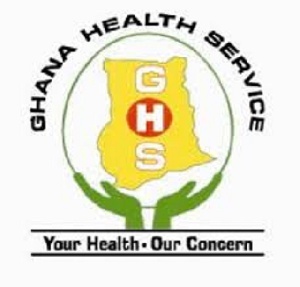About 230,000 Ghanaians representing 0.74 per cent of the total national population are blind, a national population-based prevalence survey has revealed. Dr. Hornametor Afake, the Head of Eye Care Unit of the Ghana Health Service (GHS) who disclosed this said the survey was conducted in the country in 2015 for various eye diseases. This was in a speech read on his behalf by Dr. Louis Oteng-Gyimah, an Ophthalmologist at the Sunyani Seventh Day Adventist (SDA) Hospital at the opening of the 10th Annual General Meeting (AGM) of the Ghana Optometric Association (GOA), underway in Sunyani. The three-day Meeting is on the theme "Eye Care for All by 2030: Harnessing the Optometry Potential in Ghana". In a breakdown, Dr. Afake enumerated the causes of blindness to as 127,000 (54.8 per cent) cataract, 45,000 (19.4 per cent) glaucoma and other causes including posterior segment diseases and corneal opacity. About 332,000 Ghanaians representing 1.07 per cent of total national population have a severe visual impairment with refractive error 44.4 per cent and 42.2 per cent cataracts, he said. Dr. Afake explained in 2021, the 74th World Health Assembly adopted two new ambitious eye health targets for 2030 to address the huge unmet eye care needs, adding the targets included achieving 40 per cent increase in effective coverage of refractive error and 30 per cent increase in effective coverage of cataract surgery by 2030. He emphasised the role of the optometrists remained key to the achievement of the targets, regretting that about 67 per cent of people with vision impairment and about 95 per cent of those who needed glasses in the country did not have access. Dr. Afake said the National Eye care Unit would continue to work with all eye care professional groups, including the optometric association to deliver comprehensive and quality eye care services to the national population. “Currently, we have about 506 optometrists in the country and this gives a ratio of 1 optometrist to about 62,000 Ghanaians which is acceptable by WHO standards, but the real issue is the regional distribution”, he said. Available figures he added indicated that 229 (45 per cent) optometrists were in Greater Accra, 110 (21.7 percent) in the Ashanti, and only 167 (33.3 per cent) were spread across the other 14 regions. Dr. Afake, therefore, called on members of the Association to accept postings to all districts in the country to make eye care available, accessible and affordable for everyone. Dr. Mahama Asei Seini, a Deputy Minister of Health underscored the need for everybody to be conscious and take good care of their eyes, saying the government would also ensure that Ghanaians access quality eye care services as well. He commended the Association for its efforts in ensuring quality and prompt eye care services in the country and assured government’s commitment to support the Association in the implementation of policies and programmes to improve on eye care services delivery.
Entertainment












